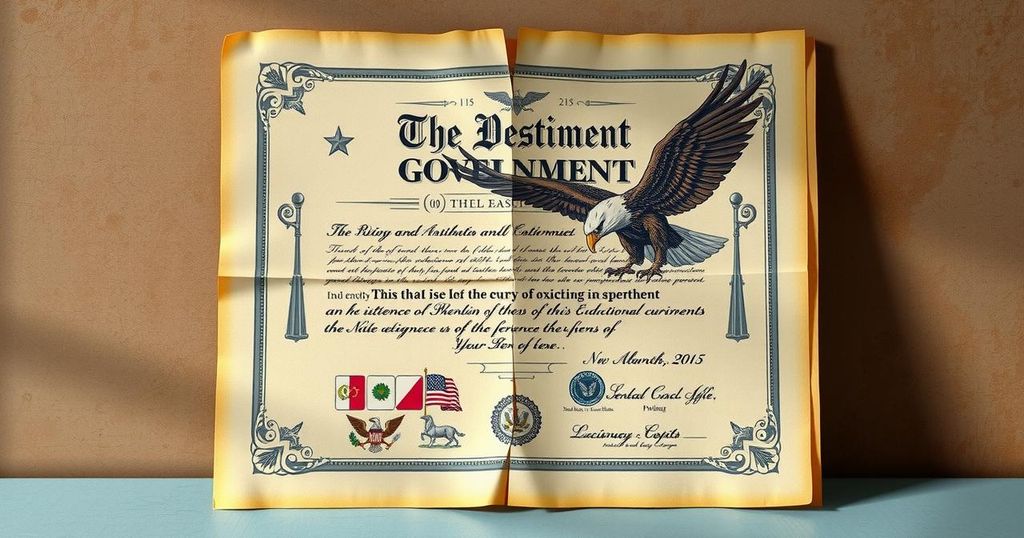Understanding the Alien Enemies Act and Its Recent Application by Trump

The 1798 Alien Enemies Act allows the U.S. President to detain and deport individuals from enemy nations. Recently, it was invoked by former President Trump to deport Venezuelan migrants linked to gang activities, despite a judicial block. This act, used sparingly throughout history, is now facing scrutiny and criticism from human rights organizations and legal experts for its implications on migration and due process.
The Alien Enemies Act, enacted in 1798, empowers the President of the United States to detain and deport individuals from nations deemed a threat or enemy without standard legal protocols. Recently, this law has been used by former President Donald Trump to deport over 200 Venezuelans accused of gang affiliations to El Salvador. The U.S. government characterized the Venezuelan group Tren de Aragua as threatening an invasion. Despite a temporary judicial block against the deportations, the White House proceeded, asserting the judge’s order was invalid.
Initially passed during a time of potential conflict with France, the Alien Enemies Act specifically allows the government to apprehend individuals from hostile nations in cases of declared war, invasion, or similar threats. The act has only been previously utilized during a few historical conflicts, with its last application occurring during World War II against individuals of Japanese descent, resulting in the internment of approximately 120,000.
While former President Trump referenced the Alien Enemies Act during his inauguration, his recent actions marked the first use of this law during his administration. He claimed that the Venezuelan gang posed an imminent threat necessitating their removal as alien enemies. Rights organizations, including the American Civil Liberties Union (ACLU), have condemned this decision, arguing that it violates legal principles due to the absence of a formal state of war. Following a failed judicial intervention, El Salvador’s President Nayib Bukele commented on the matter, suggesting the deportations proceeded too swiftly.
Venezuela condemned Trump’s actions, asserting that invoking this historical law equates to unjustly criminalizing migration and reminds one of significant historical atrocities. Legal experts have criticized the use of the Alien Enemies Act for deportations, asserting that such a measure aligns more with ancestry-based discrimination than substantiated gang-related offenses, as no concrete evidence was provided during immigration proceedings.
The utilization of the Alien Enemies Act by former President Trump to deport Venezuelan migrants highlights the extensive powers granted to U.S. presidents under this law. While the act has historical precedent, its recent application raises significant legal and ethical concerns, particularly regarding human rights. The backlash from legal experts and human rights organizations underscores the contentious nature of this decision. With critiques from both Venezuela and domestic entities, the situation exemplifies the complexities surrounding immigration policy and national security concerns.
Original Source: www.bbc.com








